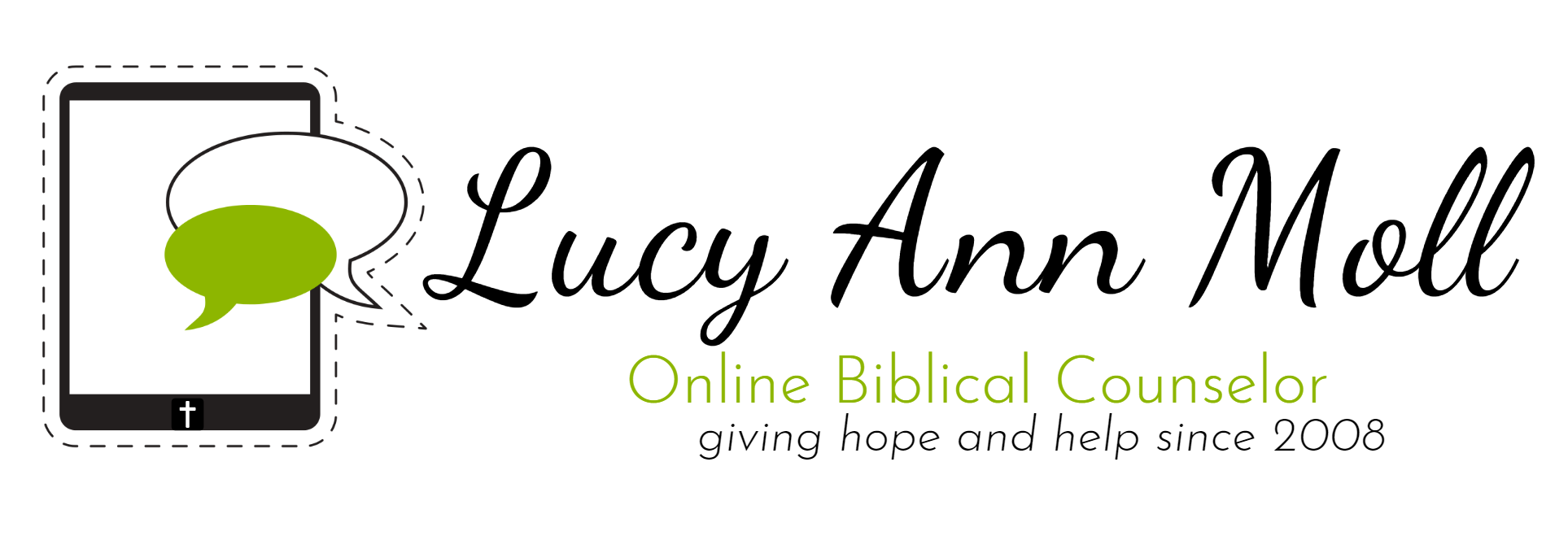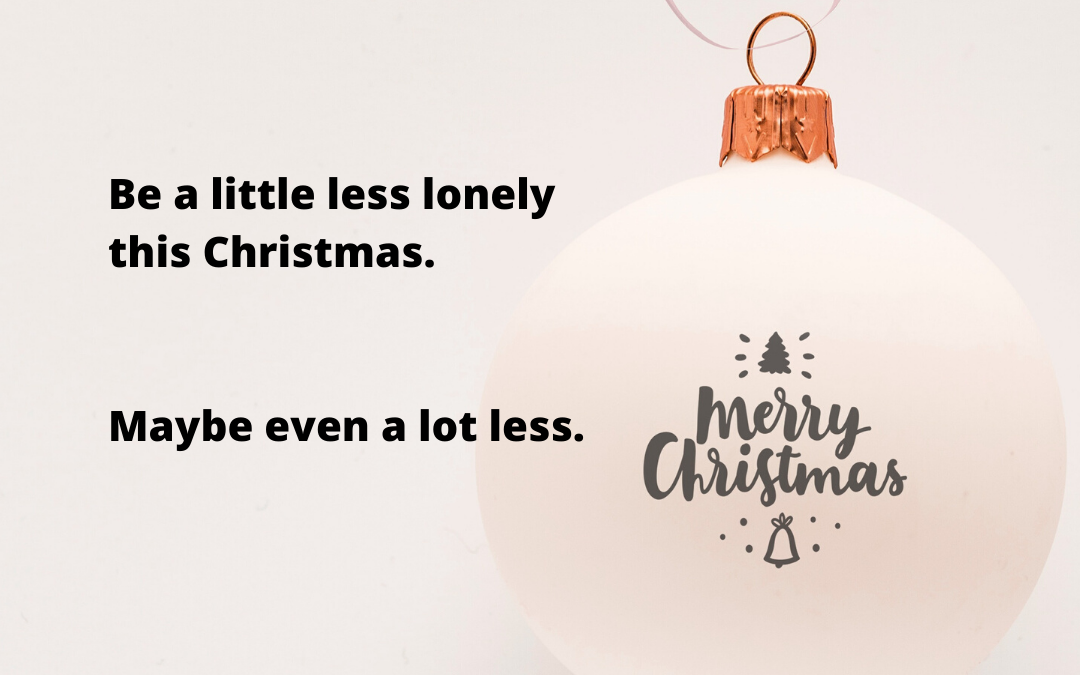
by Lucy | Jul 16, 2020 | biblical counseling, emotions, relationships |
When we are under a lot of stress, our anger may bubble over and scorch someone. Then what?
We may think that we are justified in our anger and that the other person deserved our hot words or our icy stare. But Scripture provides a better way: confession leading to forgiveness. In other words: an apology!
Here is an article I wrote for the Biblical Counseling Coalition in the middle of the 2020 pandemic. I hope it helps!

Jack and Jill needed help in making an apology. Yes, they are living the American dream: steady employment, a nice home, two healthy children, and a marriage that has lasted eleven years. But there is a problem. But under his successful veneer, Jack becomes angry when he doesn’t get what he wants and lets his family know it, loudly. Jill also gets mad—a quiet simmering, stewing kind of anger that is just as nasty as her husband’s.[1]
Each has said and done things that, at the time, made sense in the heat of their anger. Their relational pain prompted them to make an appointment with a biblical counselor who showed them from Scripture that an angry heart is the cause of their conflict (Matt. 5:21-22; Mark 7:20-23; Luke 6:43-45; James 4:1-2; 1 John 3:15).
This was news to Jack and Jill, both Christians. He had figured that his upbringing was at fault for his anger problem and that his wife’s monthly hormonal swings had caused her irritation. As they were beginning to each take responsibility for their own sin, Jack and Jill needed to replace their old way of sweeping their anger under the rug, which had only created more problems (James 1:19-20).[2]
It is essential to relational healing for the wrongdoer to confess to the harmed party how he or she failed. We often call this “making an apology.” This blog post covers a sliver of forgiveness—specifically, seven parts of an apology, outlined by Ken Sande, author of The Peacemaker. Making an apology is an art that requires humility. But usually, we mumble a quick “I’m sorry” or say, “Let’s just forget it, okay?” These non-apologies rarely bring about true forgiveness and may deepen resentment.
So, what’s a better way? Consider “Seven A’s of Confession.”[3]
1. Address Everyone Included
First, confess your sin to God (Ps. 32:5; 41:4), then to every person who has been touched by it. Ken Sande differentiates between a “heart sin” and a “social sin.” “A “heart sin” takes place only in your thoughts and does not directly affect others. Therefore, it needs to be confessed only to God.”[4] But often, a sin is not only a heart sin but a social sin that is evident in our behavior. When Jill felt anger toward Jack, for example, she very rarely talked to him about it; instead, she became irritated and sniped at him and their children. In counseling, she learned of her need to confess the sin of grumbling to each of them and seek their forgiveness.
2. Avoid If, But, and Maybe
Using these words negates the confession, for it shifts the blame to others or minimizes guilt. The best example: “I’m sorry if I’ve done something to upset you.” Isn’t it amazing that the tiny word “if” ruins this frequent “confession”? It implies that the person does not know whether there was any wrongdoing in the first place.
Other examples of non-confessions:[5]
“I shouldn’t have gotten mad, but I was tired.”
“I know I was wrong, but so were you.”
3. Admit Specifically
The more detailed the apology, the better. Rather than saying, “I acted like a jerk yesterday,” you might say, “I’ve been taking out my frustrations on you. I have had a lot of stress caring for the kids, but this doesn’t give me an excuse to criticize you and nag you.”
When possible, identify how you violated God’s will. When you detail your wrong and focus on where you need to change, then the other person is more likely to respond positively to your apology.
4. Acknowledge the Hurt
Acknowledgment may rightly sound like, “I can only imagine that you felt fearful when I didn’t come home until late last night” or “I can only imagine that when you found a porn site in my search history, you felt deeply hurt and angry.” For an apology to be effective and meaningful, you must express sorrow. The sorrow must be genuine, of course: “For godly sorrow produces a repentance that leads to salvation without regret, whereas worldly grief produces death” (2 Cor. 7:10). People see through a fake confession, and it simply makes things worse (Prov. 6:16-19).
5. Accept the Consequences
Winston Smith relates a story of forgiveness granted easily to someone who had sideswiped his wife’s car and had left a note on the windshield, admitting wrongdoing and offering to pay for repairs. “After a few phone calls and a trip to the body shop, the car was repaired, and a check from the offender came in the mail. All was forgiven.”[6]This person acknowledged their wrongdoing and accepted the consequences.
We read examples of restitution in the Bible, too. A primary example is the chief tax collector, Zacchaeus, who had climbed a sycamore tree. What made his confession believable was his eagerness to pay back the people he had cheated. When he met Jesus, he declared that he’d give half of his possessions to the poor, and “if I have cheated anybody out of anything, I will pay back four times the amount” (Luke 19:8). The greater your willingness to repair the damage you may have caused, the more believable your confession.
6. Alter Your Behavior
In counseling, Jack and Jill came to understand that their anger arose from a selfish heart. Jack wanted peace and quiet; Jill desired comfort. Jack learned to repent of the evil desires that produced his anger and to receive God’s forgiving grace.[7] Likewise, Jill became aware that she was bitter toward her husband and turned to Jesus in repentance and faith.[8]
As they each confessed their sin to God and thanked Him for His forgiveness, they began to alter their behavior. One change they made was to speak the truth in love (Eph. 4:15). A second was to keep no record of wrongs (1 Cor. 13:5). A third was to listen well (James 1:19). Sande recommends a written plan that details the changes you plan to make because it “shows you take the matter seriously and are willing to spend substantial time planning how to change.”[9] He also suggests listing specific goals and objectives so that you have an objective way to measure progress toward the goal of making a heartfelt apology.
7. Ask for Forgiveness (and Allow Time)
Very often, if you’ve completed the previous six steps, when you ask, “Will you forgive me?” forgiveness will be granted readily. The question itself signals that you have completed the apology and that it is the other person’s turn to respond. While Scripture commands believers to forgive (Col. 3:13), sometimes granting forgiveness is difficult. It may take time, especially if the hurt is deep.
Sande makes this suggestion:
If you sense that the person to whom you confessed is simply not ready to forgive you, it may be helpful to say something like this: “I know I have deeply hurt you, and I can understand why you would have a hard time forgiving me. I hope that you will soon be able to forgive me, because I want very much to be reconciled. In the meantime, I will pray for you. I will do my best to repair the damage I caused as quickly as possible… If there is anything else I can do, please let me know.”[10]
If forgiveness is still slow in coming even after you’ve made this appeal, then you may need to go back over the previous six steps to make sure you’ve made a good apology. It is also possible that the other person doesn’t understand the biblical concept of forgiveness.[11] In this case, you may need to humbly provide the necessary information. Another option is to ask for help from a pastor or trusted Christian friend.
Of course, not every apology requires all of these steps. But if the hurt is deep or is a compilation of many lesser offenses, then using this template may prove wise. Do not let the steps themselves become a ritual, however, as had Sande. He confesses, “I have caught myself going through the Seven A’s simply to get a burden off my shoulders and minimize the consequences of my sin. In the process, I heaped greater burdens on the person I had already wronged.”[12]
Truly, making an apology is an art. As God opens your eyes to how you’ve hurt others, He’ll also give you the desire and the grace to seek forgiveness from Him and from the one you’ve offended. While many of us know what forgiveness is, it is always good to understand the parts of an effective apology. These seven steps will help you to avoid a wishy-washy apology and provide an expression of regret that leads to genuine forgiveness and reconciliation.
Questions for Reflection
- Which of these seven parts of an apology are either new to you or are difficult for you?
- Do you push the person you’ve offended to accept your apology right away? Why is this a wrong way of handling an apology?
[1] Robert D. Jones, Uprooting Anger: Biblical Help for a Common Problem (Phillipsburg, NJ: P&R Publishing Company, 2005), 13. Jones uses the fictitious story of Jack and Jill to help the reader understand biblical truth concerning anger. His book is among the very best on the topic.
[2] Ken Sande, The Peacemaker: A Biblical Guide to Resolving Personal Conflict, 3rd ed., Grand Rapids, MI: Baker Books, 2004, 136-137. Among the many compounding problems are reckless words, grumbling and complaining, lying, slander, malicious thoughts, stubbornness, vengeance, bitterness, defensiveness, and withholding mercy and forgiveness.
[3] Ibid., 126-133.
[4] Ibid., 127.
[5] Ibid., 128.
[6] J. Alasdair Groves and Winston T. Smith, Untangling Emotions (Wheaton, IL: Crossway, 2019), 204.
[7] Jones, Uprooting Anger, 148.
[8] Ibid., 149.
[9] Sande, The Peacemaker, 132.
[10] Ibid., 133.
[11] This blog post does not begin to cover all of what forgiveness is. One excellent resource I recommend is Unpacking Forgiveness: Biblical Answers for Complex Questions and Deep Wounds (Wheaton, IL: Crossway, 2008). Author Chris Brauns helps his readers understand when and how to forgive.
[12] Ibid., 133.

by Lucy | Dec 18, 2019 | biblical counseling, emotions
When Christmas cheer brings on isolating loneliness, how can your survive, even thrive?
This short article shows that you really can find God in your loneliness at Christmas! And it’s NOT another tiresome to-do list!
Loneliness at Christmas, or any time of the year, unsettles us. It’s uncomfortable and unwanted. It may drive us to seek false comforts: TV, Facebook, sleep, food, booze, sex. It often turns us inward, compounding the lonely ache in our hearts.
Consider Lydia Brownback’s description of loneliness at Christmas.
“Looks like winter is here!” Brownback called to the mom next door as she and her neighbors cleared their cars and walkways.
“Indeed it is!” the neighbor responded. “And the timing of all this snow is perfect. After supper we’re going to make hot chocolate and decorate the Christmas tree. The kids are really excited.” Picturing her neighbor spending quality time with family sparked a deep sense of loneliness in Brownback. She had no one to share the festivities with, and it hurt, she shared in her book, Finding God in My Loneliness.[1]
The good news is that when we seek God as our true treasure, we find what we’ve been looking for all along: Him.
What Is Loneliness?
Loneliness is “an emotionally painful sense of not being connected to others. The lonely person may feel unwanted, isolated, and left out.”[2] It is a pain of disconnect. It is not social isolation, per se.
There are many people who love their alone time and do not feel lonely. Rather, it is the distress of what one has and what one wants, played out in the arena of social relationships. David Powlison pinpointed this disconnect: “Fear and desire are two sides of the same coin. A sinful fear is a craving for something not to happen… If I long to be loved, I’m terrified of rejection. If I fear pain or hardship, I crave comfort and pleasure.”[3]
Loneliness Is Common
Married or single, young or old, male or female, counselor or counselee–we all have suffered this empty feeling of disconnectedness at some point. For some of us, it’s chronic and unrelenting. Loneliness may affect three out of four Americans, a 2018 survey reveals. And it’s bad for our health, social scientists claim.
Connecting through social media doesn’t help. In fact, it may worsen it. It appears that many people are substituting online connections for in-person connections.
What Does Loneliness Reveal?
The reason we feel lonely is God created us for community with Him and others. He fills the lonely ache in our heart.
Loneliness began in the Garden long ago when the first couple rebelled against God and looked for fulfillment apart from Him. Their sinful declaration of independence separated them from God and one another. It brought Adam and Eve fear, shame, guilt, and loneliness.
The good news is that God had a plan from the beginning to restore man to a personal relationship with Him. Indeed, God made us with the capacity for loneliness to point us to Him, and we find what our hearts desire only in Him.
“And in Him you have been made complete, and He is the head over all rule and authority” (Col. 2:10).
Man’s False Solutions
The earthly solutions for loneliness fail to bring real and lasting change. Among them are:
- baking another batch of holiday cookies
- jamming the calendar with activities
- scrolling Facebook and Instagram
- binging on Hallmark Christmas movies
When we choose our own solutions over God’s, our loneliness deepens. In contrast, God’s solutions for loneliness draw us to Him and others.
God’s True Solution
We were created for a deep, personal relationship with God that cannot be satisfied through work, hobbies, marriage, or anything else. Keeping our eyes focused on Jesus and serving others solves our loneliness problem. We must resist focusing inward when we feel disconnected.
To get to the root, the lonely person might seek the answers to these two questions:
- Who am I focusing on?
- What am I living for?
There are two choices: God or self. Matthew 10:39 clarifies our need for God’s remedy. It reads, “Whoever finds his life will lose it, and whoever loses his life for my sake will find it.”
With this in mind, we find God in our loneliness. We can admit that when we turn to our own solutions for loneliness, we are looking to self for completion. In addition, we can choose to seek to treasure Him above all.
Keep Doing These 4 Things
1. Spend time in the Word daily helps us know Him.
2. Prayer.
3. Attend a Bible-believing church allows us to hear the gospel preached and to know and serve other believers.
4. Intentionally serve others in our families and neighborhoods through volunteering. And volunteering need not be formal; simply listening deeply is a gift.
Most of all, we recognize that our loneliness is pointing us to God. So, during the holidays, when loneliness may become particularly painful, resist turning inward. Rather, let this unwanted feeling help you realize something’s missing. That something is found in Jesus alone.
Those who belong to Jesus are never truly alone. He has the remedy for loneliness at Christmas and all year long.
[1] Lydia Brownback, Finding God in My Loneliness, (Wheaton, IL: Crossway, 2017), 13.
[2] Mary Somerville, “Coping with Loneliness,” National Association of Nouthetic Counselors, Annual Conference, 2005, mp3.
[3] David Powlison, “Dynamics of Biblical Change,” class notes, Christian Education and Educational Foundation (CCEF), 2002. Quoted in Lydia Brownback, Finding God in My Loneliness, (Wheaton, IL: Crossway, 2017), 25.
This article appeared first here at The Biblical Counseling Coalition. Minor edits for space.

by Lucy | Nov 12, 2019 | biblical counseling
Imagine what would happen if we lived victorious faith.
In place of tired and weary hamster-wheel Christianity, people would see Christ in us, in you, right? We’d have a spring in our step, a genuine smile on our fact. Vibrant, authentic, compassionate — these words would describe us.
This description fit one of my counselees too. I met with this 40-something West coast woman by video-conference, where she peered at me through chocolate-colored eyes and shared her heart for women in prison. She visited them, cried with them, brought them hope through her own sad story of brokenness.
God gave her grace to love “the least of these.” In response, she believed God and acted on her belief. She lived out of victorious faith, and so can you and I.
Remember this faith definition:
Faith is choosing to act on your belief
no matter how you feel.
Remember these 4 key faith words!
Believe. Act. Choose. Know.
1. Believe.
Victorious faith is believing in the Word of God. Do you believe the Word–that is, the Bible–and all it says about God and about you? You are chosen, loved, forgiven, and a daughter of the most high God of love and holiness.
2. Act.
Victorious faith is acting upon your belief. One thing I share with my counselees is believing the Word can be tough sometimes, but acting on your belief is often tougher. Indeed, your actions show whether your belief is true.
Several summers ago, I drove six hours alone to a writer’s conference. So what? you may ask. When I zoomed my Honda on the highways, I acted in faith that God is with me even if I had a panic attack. If you’ve experience panic attacks, you know this terror, a terror I wish on no one. (I wrote a mini-book on it too: HELP! I Get Panic Attacks. You can order it here.)
I had been plagued by highway driving phobia since my late 20s. Now was the time to act on my belief. What belief do you struggle acting upon? What is one step you can take toward acting upon your belief?
3. Choose.
Victorious faith is choosing to act on your belief no matter how you feel. Was I scared during my drive from my home to the conference? At times, yes. I felt tense and edgy and shaky every so often and especially when the traffic got heavy or I had to make highway changes.
Yet I chose to act of my belief in my fear.
I could have let my fear keep me home. And, sadly, many times I’ve made the choice to let my feeling rule me. When have you given into to your emotions? Which emotions tend to get the best of you? What can you do differently and honor God?
4. Know.
Victorious faith is knowing God promises a good result. What do people say about life and lemons? When life hands you lemons, make lemonade. God promises more than a refreshing beverage. He promises that faith in his Son Jesus brings everlasting life now to those who believe.
In fact all of his promises are wonderful. He promises provision and protection and peace as well as loving discipline, abundant life, and hope.
Savor this familiar scripture:
Trust in the Lord with all your heart,
and do not lean on your own understanding.
In all your ways acknowledge him,
and he will make straight your paths. (Prov. 3:6-7)
Believe the Word of God and act on it, no matter how you feel, knowing God promises a good result.
Next Step to Victorious Faith
What helps you act on your belief that God is who he say he is and keeps promises? What gets in the way of your acting on your belief? May I encourage you swap faith stories with a trusted Christian girlfriend?
We all need encouragement. Be that person who loves like Jesus.
But sometimes we’re tired.
If you tired and weary, and you’d like counseling to reclaim joy and honor Jesus, please contact me. We can set up a complimentary counseling phone consult at your convenience. Click here to request a free consult.









